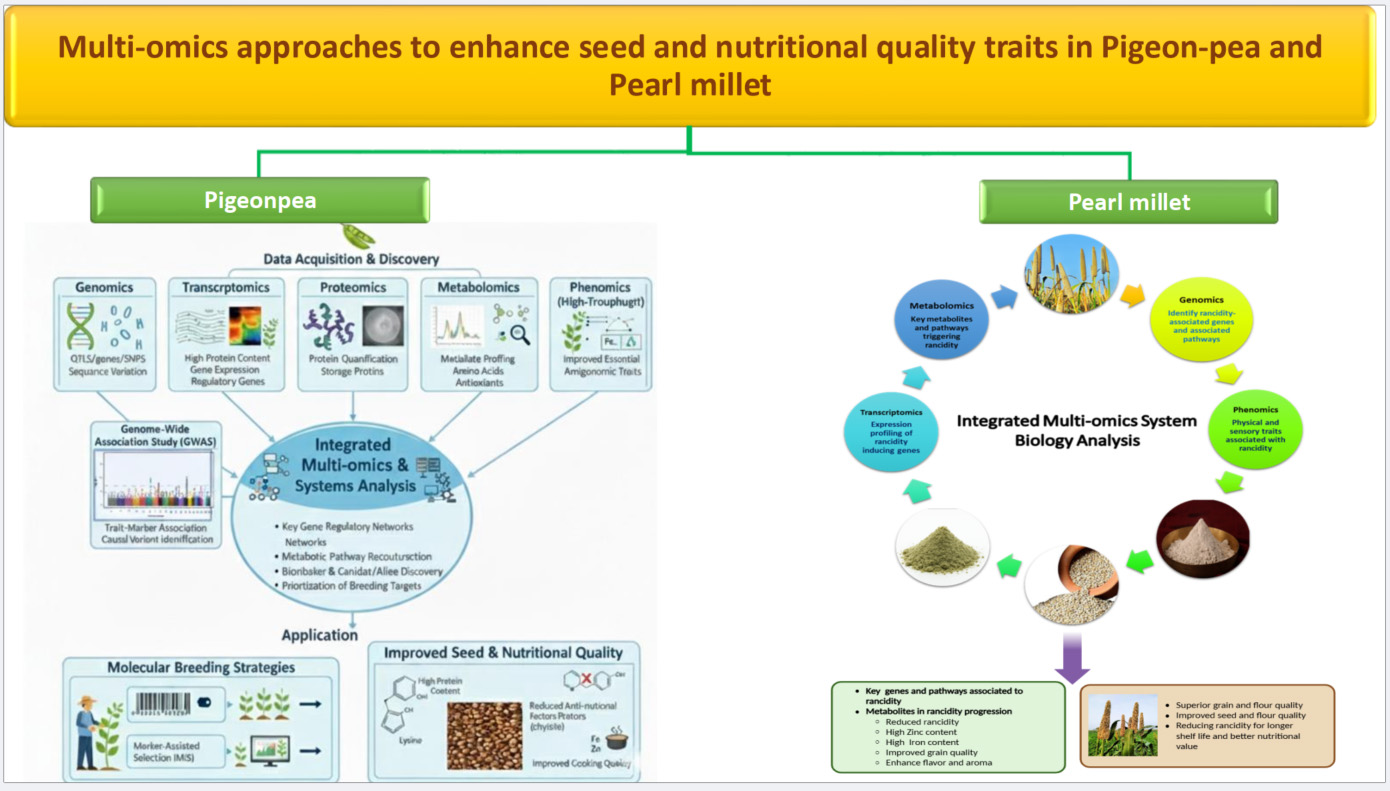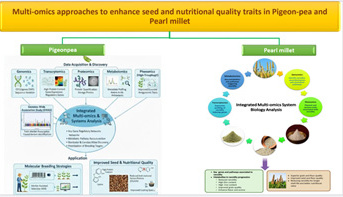Seminar Dr Nisha Singh
Multi-omics approach to enhance seed and nutritional quality traits in Pigeonpea & Pearl millet - Tuesday, November 18th 2025 11 am, INRAE, Versailles
Ensuring food and nutritional security remains a global priority, especially under the growing challenges of climate change. Expanding the cropping system through nutrient-rich and climate-resilient crops such as pulses and millets offers a sustainable solution. Legume seeds are known as “meat for vegetarian diets” and millets considered as “god of grains”. Pigeonpea (Cajanus cajan L.) and pearl millet (Pennisetum glaucum L.) are vital to semi-arid agriculture due to their adaptability and nutritional value; however, limitations in seed quality, protein composition, and micronutrient bioavailability restrict progress through conventional breeding. In this study, a multi-omics approach integrating genomics, transcriptomics, proteomics, metabolomics, and ionomics was employed to elucidate the molecular mechanisms regulating seed nutrient composition and accumulation. High-throughput genomic and transcriptomic analyses enable the identification of key genes, quantitative trait loci (QTLs), and regulatory pathways associated with protein accumulation, mineral transport, and anti-nutrient reduction. Proteomic and metabolomic profiling further reveal the dynamic expression of storage proteins, enzymes, and metabolites contributing to seed composition and nutritional value. When integrated through systems biology, AI and ML these datasets can identify candidate biomarkers and molecular targets for marker-assisted selection, genomic prediction, and genome editing. By linking molecular insights with phenotypic variation, multi-omics strategies hold immense potential to accelerate the development of biofortified, climate-resilient pigeonpea and pearl millet varieties with superior seed and nutritional quality contributing to sustainable nutrition and food security in marginal environments. Our research demonstrates that a multi-omics approach can accelerate the improvement of seed and nutritional quality traits in pigeonpea and pearl millet, contributing significantly to sustainable agriculture and the global fight against malnutrition. The research led to the identification of high-confidence candidate genes, omics-based molecular markers, and the development of biofortified pigeonpea and pearl millet varieties with enhanced seed protein and mineral content without compromising yield. The established multi-omics integration pipeline provides a robust platform for future crop biofortification and precision breeding initiatives.
Nisha Singh, Department of Bioinformatics, Gujarat Biotechnology University, Gandhinagar, India
Invitation : Anne Krapp
"Nitrogen Use, transport and signaling" NUTS team

In connection with the research developed at the Institute Jean-Pierre Bourgin for Plant Sciences.
Nisha Singh, Department of Bioinformatics, Gujarat Biotechnology University, Gandhinagar, India
Invitation : Anne Krapp
"Nitrogen Use, transport and signaling" NUTS team

In connection with the research developed at the Institute Jean-Pierre Bourgin for Plant Sciences.
Back

"Graphical abstract" zoom